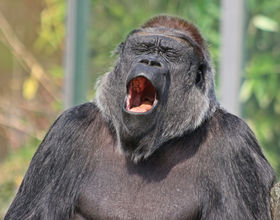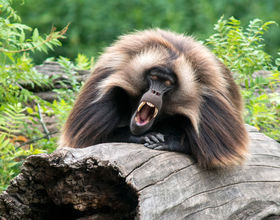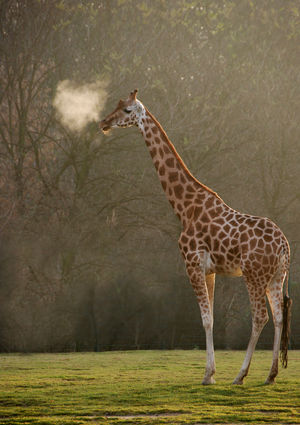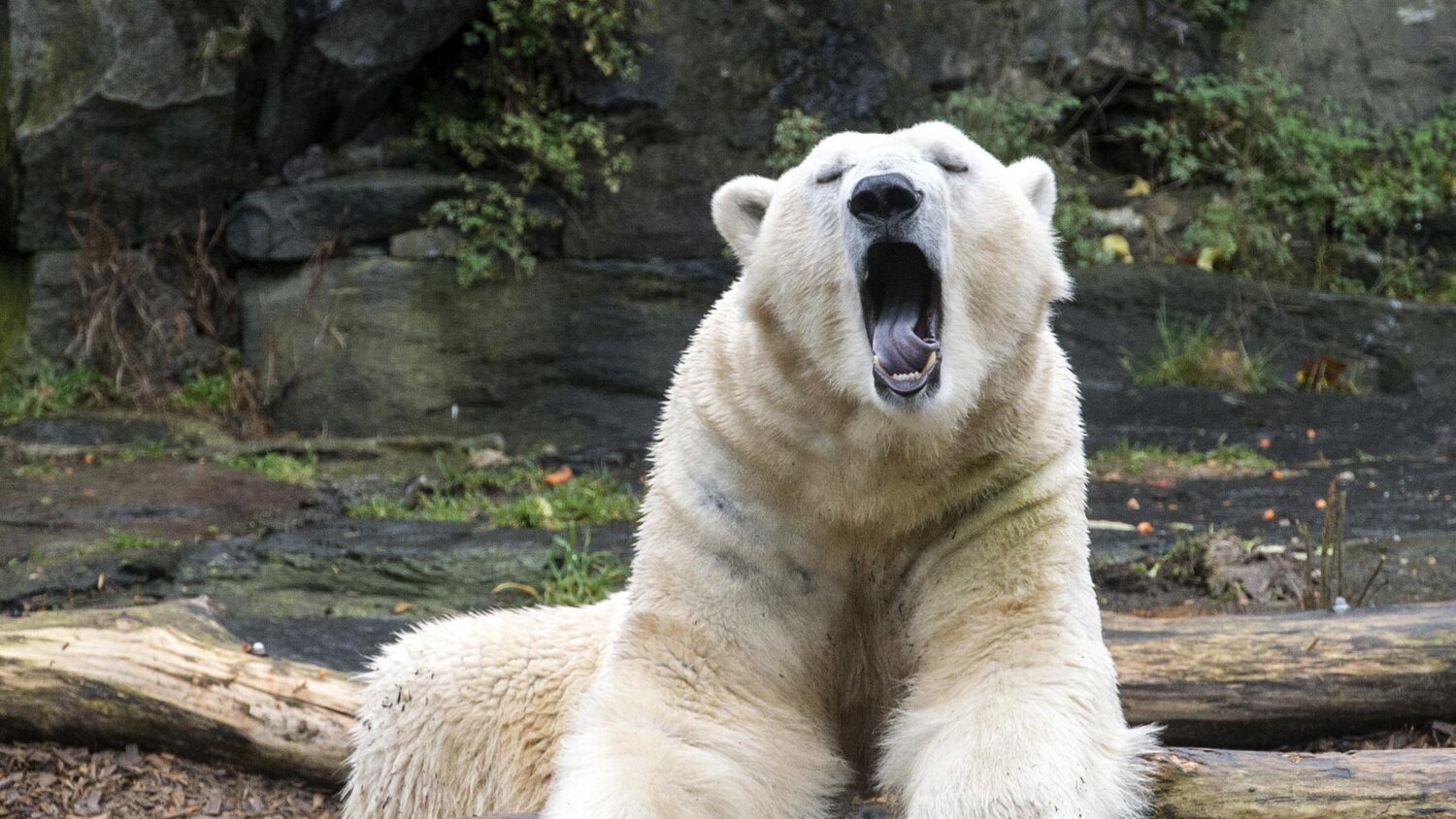Low-power winter mode
It’s wet, it’s cold, the skies are dark and gloomy and the trees are bare – winter can be a pretty depressing time of year. When days get shorter, many people find it difficult to get up in the morning and quite fancy the idea of hibernating over winter. Why not stay in bed until the dark days are over and spring with all its blossoms and optimism comes knocking at the door?


The dreams of giraffes and energy of ground squirrels

We decided to take the shortest day of the year as an opportunity to find out why animals hibernate, how hibernation differs from a winter rest and if people are capable of hibernating too. How convenient that the experts we need are right next door! Dr Florian Sicks, our mammal curator, is an expert on the subject of sleep, although more in theory than in practice. He is also an expert on dreaming giraffes. The subject of his doctoral thesis was the sleep behaviour of giraffes with a special focus on REM sleep – the phase of sleep in which we and giraffes have most of our dreams. We asked him to answer our most urgent questions on the subject of sleep for our Tierpark blog.
| Dr Sicks, what exactly happens when we sleep? |
|---|
| Sleep is our resting state. We get into a particular position and maintain it without moving. Our senses only pick up very few environmental stimuli and our arousal threshold is elevated. The need for rest is not only characteristic for humans, but is common to all animals that have been studied to date – from the bee to the elephant. |
| Why do animals – including people – need to sleep at all? |
| We still don’t know the real answer to that! It’s certainly one of the great questions that remain to be explored. What we can say for sure is that all animals that have ever been studied sleep, and that sleep deprivation impairs functionality and, in severe cases, can even lead to death. Sleep is vital for various bodily functions like learning processes in the brain and helps maintain the immune system. |
| Some animals even hibernate. How do sleep and hibernation differ? |
| Hibernation has absolutely nothing to do with sleep, apart from the characteristic lack of movement. Observations of the hibernating ground squirrel illustrate the difference very well. Ground squirrels only interrupt their hibernation a very few times. It costs them a huge amount of energy to bring their body up to a normal temperature, and normalise their heart rate and breathing. So why do ground squirrels go to all this trouble, especially at a time when their energy reserves are so low? The answer is as surprising as it might be confusing at first – they do it to sleep! If we take a closer look, we will see why they need to do this. Hibernation is a kind of low-power winter mode which animals enter in very cold winters when they have little or no access to food. The heart and breathing rate slow and their body temperature falls by about 30°C, just above freezing point. The hibernating animals stop eating and take the little energy they need to stay alive in this state from their fat reserves. But even in this state of very low metabolic activity, waste products are produced. To prevent brain damage, these need to be transported away. This is what happens during their sleep, and seems to be the reason why ground squirrels awake form their state of hibernation in order to sleep. But saving energy is not the reason we need our daily sleep – that really would be a waste of time. |
| What about the term “winter rest”? Is that different to hibernation and if so, how? |
| Animals up to the size of marmots like hedgehogs, dormice and prairie dogs can hibernate. Larger animals like bears or raccoon dogs are unable to bring their almost frozen bodies back up to a normal temperature, but still face the problem of harsh winters and a lack of sufficient food. This is why animals that are larger than marmots opt to go into a state of winter rest. Their heart rate is significantly slower, but their body temperature remains more or less the same. They also interrupt this state of rest far more frequently than hibernating animals do. They can become active again relatively quickly to eat from their hoarded food or go hunting. |
| Do animals in zoos retain the instinct to hibernate? |
| They do. Where it lives makes no difference to the animal. The decisive question is the access to food. The decreasing hours of daylight are like a clock for the animals. Prairie dogs are a good example here. The white-tailed prairie dog lives in the north of the US and hibernates, while its black-tailed relative who lives down south in sunny states like Texas and Arizona doesn’t. The black-tailed prairie dogs we have in the Tierpark Berlin do hibernate though. The winter here is too cold for their taste. |
| Is there an animal whose sleep behaviour you find particularly interesting? If so, which one is it and why? |
| I find the sleep behaviour of marine mammals particularly fascinating. To keep breathing, they need to rise to the surface of the water, so they need to work out a strategy that meets both of these two vital and conflicting needs – to sleep and to keep surfacing to breathe. They do this by allowing only half of their brain to switch into sleep mode – a state we refer to as unihemispheric sleep. If the left half of their brain is asleep, the right side is alert, and vice-versa. Migrating birds share this method of sleeping. |
| Humans are animals too, in terms of their biology. Would it theoretically be possible for us to hibernate or enter a period of winter rest? |
| Humans are far too big for that, I’m afraid. And a winter rest isn’t an option either. Humans are not physiologically adapted to this – in fact very few animals are equipped to get through the winter in a low-energy mode. But we are not alone! Many animals native to this country – like the fox, the deer or the wild boar are active in winter. |
| I do think that’s a pity. But we do know how to pile on the fat in winter! Thank you for the interesting answers to our questions. |
